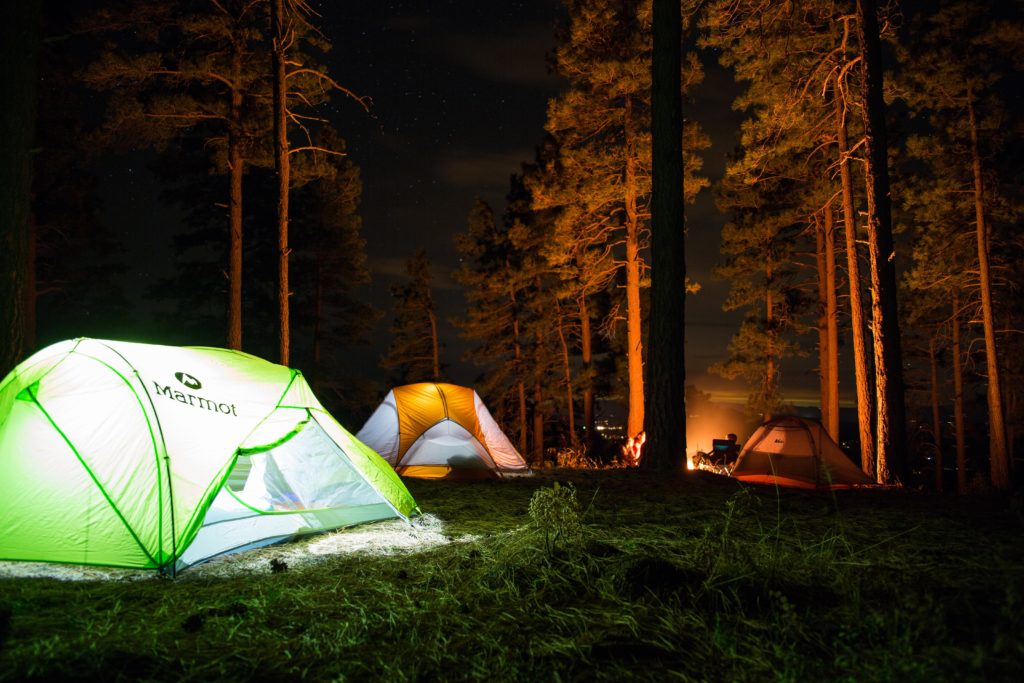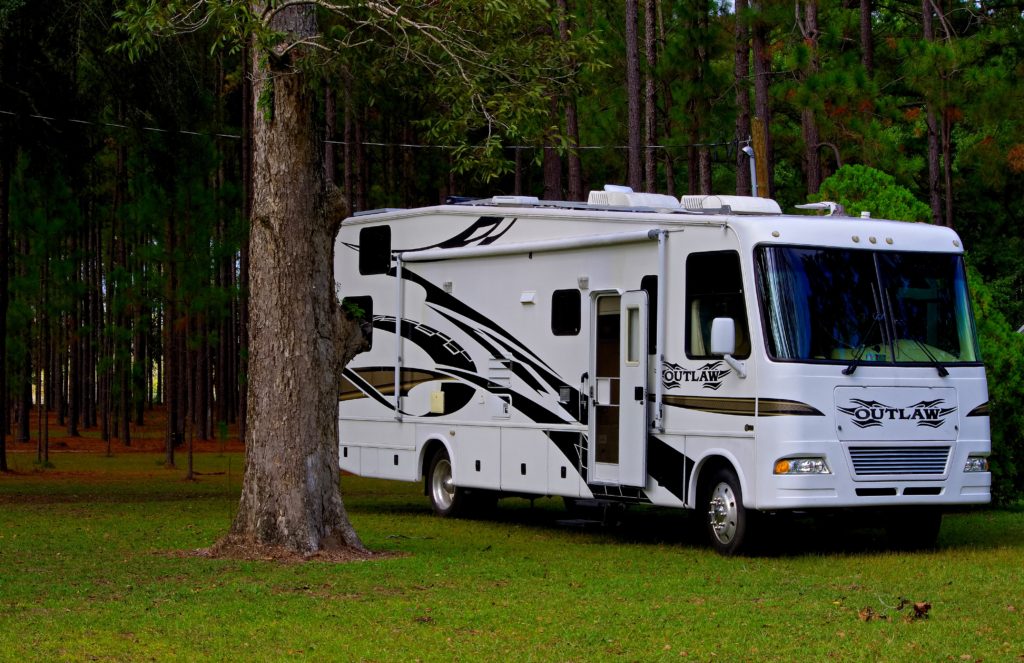
How to Stay Safe While Camping
We may earn money or products from the companies mentioned in this post.
How to Stay Safe While Camping? Camping is incredible: no annoying neighbors, no screeching telephones, no piles of work, no electronic gear distracting you. But it would be best if you stayed safe.

Camping is a great time to bond with your family or have a get-away with your buddies. But what starts as a fun weekend of camping can result in a bad experience or even death when people don’t pay attention to safety issues.
How to Stay Safe While Camping
A safe camping trip starts before you leave home. Consider doing the following before hitting the road:
- Check with the campground for closures or other restrictions.
- Check out the weather forecast.
- Research your destination if you are not familiar with the area.
- Check your vehicle to be sure it is ready for your camping adventure.
- Let someone know where you’ll be camping and when you will return.
- Make sure you leave early enough, so there will be daylight when you set up camp.
Where Should I Camp?
How do you choose a safe yet ideal camping spot? To a degree, “ideal” is in the eye of the beholder. While some may prefer sheltered idylls by the edge of a gently flowing river, others may opt for wild and savage arenas.
Many parks require you to camp in designated sites that are well set up and concentrate on environmental impact to a smaller footprint. If you are choosing your spot, look for the following:
- Wind protection (You may want a windier place during insect season.)
- Level ground for the tent.
- Water source (You may have to boil, filter, or treat it.)
- A place to hang or store food safely from animals.
- Good view.
- Check the site for glass, sharp objects, hazardous trash, and low-hanging branches before pitching your tent.

Have a trash bag on-site for every piece of litter. Put the bag into your vehicle at night or hang it from a tree in a food bag, or you may wake to find the remnants scattered around your campsite.
Campfire Concerns
- If possible, keep the fire downwind of your tent and cooking area.
- Never use gasoline to start a fire. If you must use lighter fluid or kerosene to get it going, apply the fuel before lighting the fire.
- Always watch campfires at all times. Don’t leave the area to go for a stroll when there are flames.
- Keep extra wood away from the fire.
- If the day is windy, consider skipping the campfire. Do not build a campfire if the fire danger is high; one spark can burn down an entire forest.
- Keep a bucket of water and a shovel nearby for emergencies.
- When you are ready to crawl into your sleeping bag for the night, put the fire out with water or dirt. Never leave it alone to burn out.
- Stop, drop, and roll. Remember this handy trick you learned in school in case an item of clothing catches on fire.
Campfires are one of the major safety concerns campers face. According to a study done at the University of Alberta’s burn treatment center, 74% of camping injuries are due to burns, and the percentage is even higher for adults.
Burns to children is mainly a result of walking over open flames or pouring combustible material onto an open flame. Almost half of the children that are burned while camping is under the age of four.
Communing With Nature
Please do not leave children alone with animals or encourage them to pet them. No matter how tame they appear, they are wild animals. Sudden actions can frighten the animal, and it may attack. Check everyone regularly for ticks and other insects. Ticks can cause Lyme disease, among other infections.

Children often wander away from campsites and can get lost in the woods. Consider giving them a whistle to blow and teach them to blow three blasts at a time, the universal signal for help.
Many campers don’t go prepared for temperature changes. At night temperatures can drop, and camping will be a better experience if you are prepared for it. Bring clothes to layer, such as t-shirts, long-sleeved shirts, sweaters, and jackets. Take extra blankets. Excessive heat can also be a problem. Stay in shaded areas as much as possible during hot afternoons.
Tent Camping: Stay Safe While Camping
Camping in a tent provides its own challenges. Only use a flame-resistant tent. Keep stoves, lanterns, candles, and such out of your shelters. Do not build your campfire within ten feet of your tent, preferably farther. Don’t smoke cigarettes or cigars near the tent and never inside. It is handy to keep a utility tool or Swiss Army knife near you so you can cut your way out of the tent if necessary.

Use only battery-operated lights in or near the tent.
If possible, do not put your tent directly under a tree. Limbs have fallen in the middle of the night and injured dozing campers.
RV Camping
The RV sector is and has been growing at a rapid pace over the past five years. It is estimated that there are some 650,000 RVs on the road in the USA today. RV shipments in Canada are expected to be between 1.3 and 1.5 billion dollars annually, which represents 38,000 to 40,000 new units. This trend has continued over the last number of years and is forecast to continue.

As for safety concerns, RVs today are very well equipped with all of the necessary safety devices (smoke detectors, CO monitors, fire extinguishers) and have better towing and driving equipment.
Campers face a wide range of possible risks, depending on where they camp, the time of year, their level of experience, and other factors. By doing a little research and preparation before you go, and staying alert for potential dangers while you’re there, you can help ensure a safe and enjoyable camping trip.
Check out other tips and tricks we have shared if you like how to Stay Safe While Camping :
- How to Keep Bears Away From Your Campsite
- Camping Tips for Beginners and City Slickers
- Camping with Small Dogs
- How to Camp Comfortably and Eat Well Outdoors
- Camping Music for the Modern Camper
- 40 Great Hobo Packets for Camping
